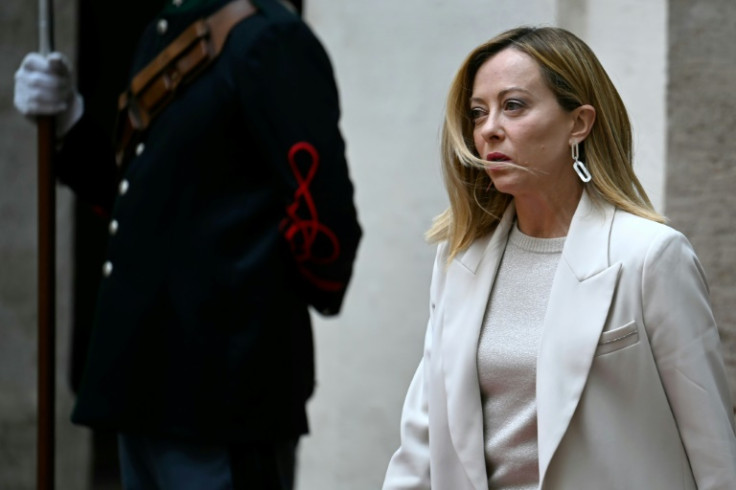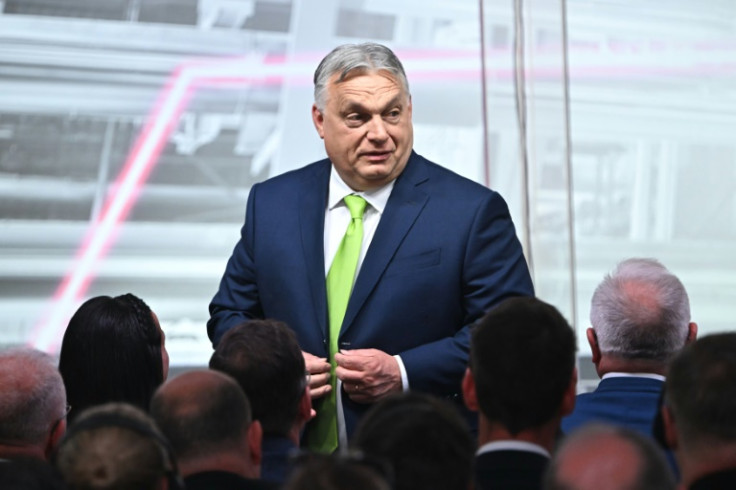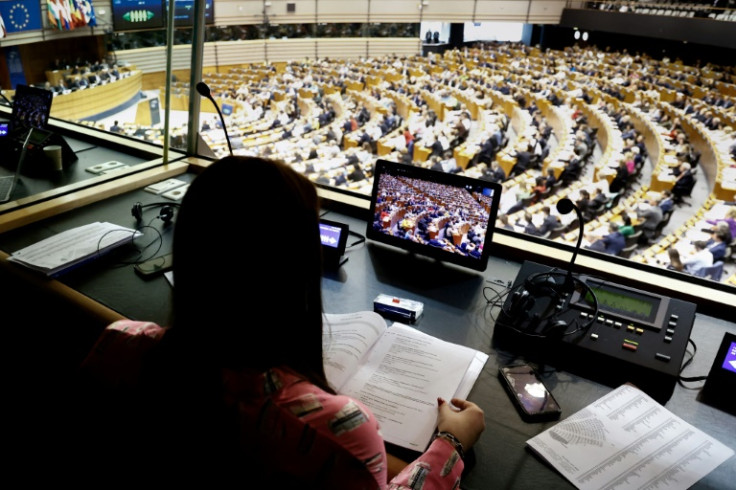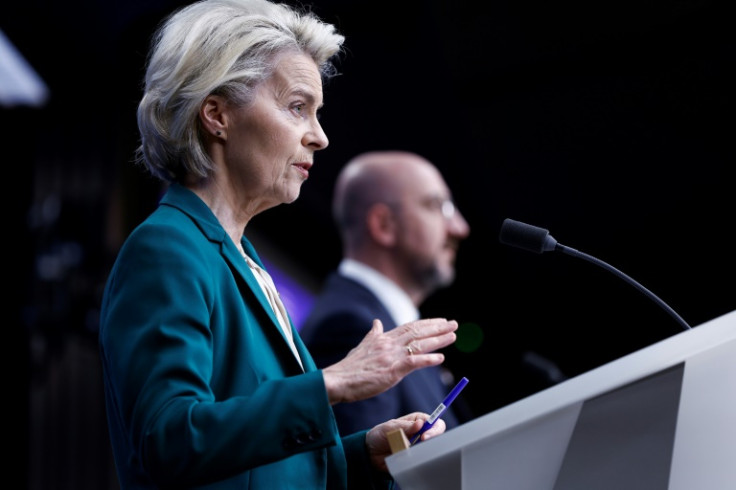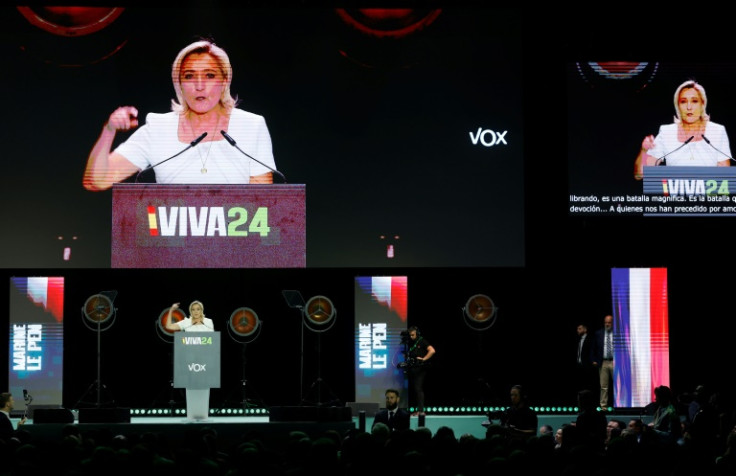
Europe's far-right figureheads Marine Le Pen and Giorgia Meloni are hinting they could join forces following this summer's EU elections, after Le Pen's French party announced a break with its radical German ally AfD.
The overtures presage a possible reconfiguration of nationalist parties' alliances after voters decide the next European Parliament in June 6-9 elections.
Surveys suggest the parliament's far-right groups -- currently fractured -- will win around 37 percent of seats in the next legislative term, up from 30 percent currently.
At a far-right rally in Madrid on Sunday, Le Pen declared: "We are all together in the final stretch to make June 9 a day of liberation and hope."
A day later Meloni, prime minister of Italy since October 2022, said in a television interview that she wanted to replicate the success of her post-fascist party at home and "do the same thing in Europe: ally parties that are compatible with each other in terms of vision, even with completely different nuances".
The door to that scenario opened wider Tuesday when Le Pen's National Rally (RN) said it was splitting with the Alternative for Germany (AfD).
The announcement came after the AfD's lead EU candidate Maximilian Krah -- buffeted by controversies -- told an Italian newspaper that not every member of the Nazi's feared SS was "automatically a criminal".
"The AfD crossed what I consider to be red lines," RN leader Jordan Bardella told French channel LCI. He said far-right alliances in the European Parliament would "go back to zero" after the elections.
The RN and AfD are part of the extreme-right Identity and Democracy (ID) EU parliament group.
Meloni's Brothers of Italy party, in contrast, sits with the far-right European Conservatives and Reformists (ECR).
A third hard-right force sits in the EU parliament in the form of Fidesz, the unaffiliated party of Hungary's Kremlin-friendly Prime Minister Viktor Orban.
Analysts say key issues divide the parliament's far-right factions.
Most notably, the ID is sceptical of continued EU support for Ukraine's war against Russia's invading army, while the ECR backs Kyiv in its fight.
"These deep-seated differences seem difficult to reconcile," Pascale Joannin, managing director at the Robert Schuman Foundation, a think tank, said in an analysis.
But Nicolai von Ondarza, at the German Institute for International and Security Affairs, wrote on X that "a more fundamental change has now... become possible" because of the RN-AfD split.
Le Pen could now "argue for a merger with Meloni, Orban, (the Netherlands' Geert) Wilders & Co towards a united far-right sans the most radical part", he said.
But von Ondarza acknowledged that most likely, "the differences... are too high" for that to happen.
Daniele Albertazzi, co-director at the Centre for Britain and Europe think tank, said on X that while it might be "logical" for Le Pen's RN to abandon the ID and join the ECR, "she may well resent playing second fiddle to Meloni".
"Too many queen bees and the bee hive descends into anarchy," he said.
While Le Pen has welcomed Meloni "opening the way" to a possible rapprochement, she also said last year that the Italian leader "is not my twin sister".
Le Pen is more closely allied with Meloni's deputy prime minister Matteo Salvini, from Italy's far-right League party -- a fellow ID member.
Salvini's team posted Wednesday a photo of him meeting online with Le Pen to "take stock of the situation ahead of the European elections, also in light of the reflections shared yesterday on the future composition of the ID group".
Von Ondarza said that while the "power potential would be there" for a Le Pen-Meloni configuration, the far-right forecast was "messy".
Eric Maurice, policy analyst at the European Policy Centre, said he believed that "the break isn't total" between the RN and the AfD, and that the announcement of a split could prompt the German party to "tone down its radical image".
A hypothetical ID-ECR merger could create the second-biggest grouping in the parliament, behind the conservative European People's Party (EPP) of European Commission chief Ursula von der Leyen -- who is tipped for a second term.
But even divided, a bolstered far right could pull the EPP in its direction, according to Pawel Zerka, senior policy fellow at the European Council on Foreign Relations.
"We cannot fully trust the EPP" not to ally with the far right, Zerka told the European Center for Populism Studies.
